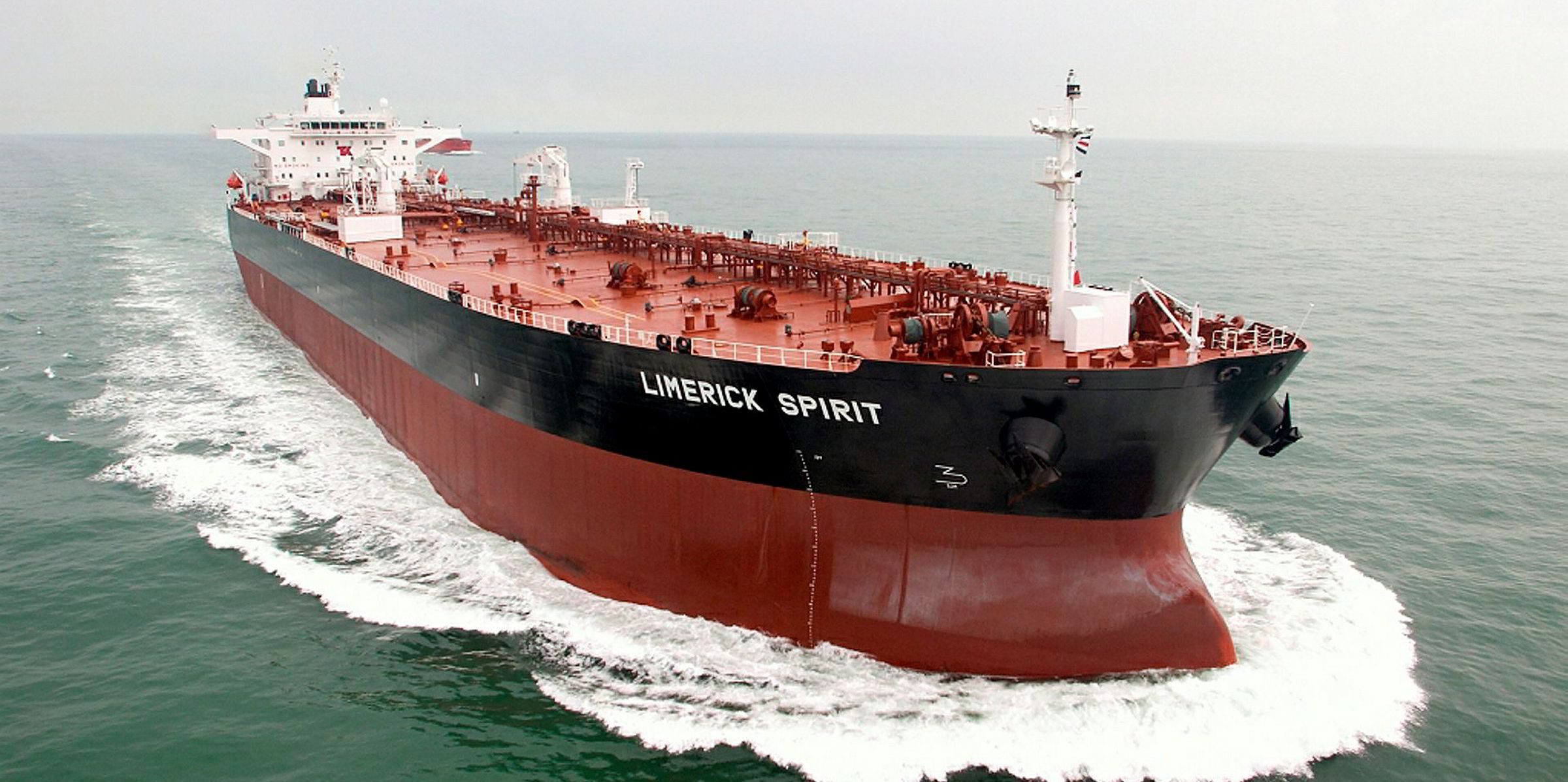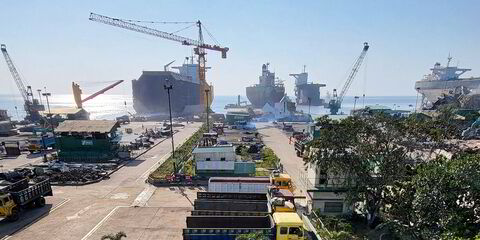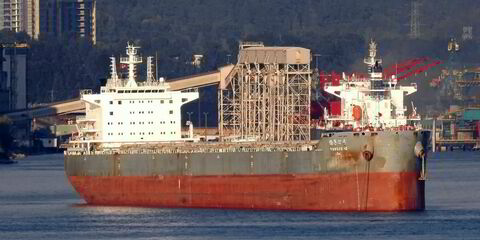Spot earnings for LR product tankers have fallen sharply over the past week as lower naphtha flows and reduced floating storage demand fuel a tonnage oversupply, market sources said.
Clarksons Platou Securities assessed LR2 earnings at $24,500 per day on Thursday morning, which was a 28% slump over the past week. The investment banking arm of shipbroking giant Clarksons showed LR1 earnings were down 31.3% at $17,500 per day.
These were the lowest level in about three months.
Data from the Baltic Exchange showed the weakness was most pronounced on the benchmark Middle East Gulf-Japan route, where daily LR2 earnings were crushed by nearly $6,000 to $17,616. LR1s earnings dived by $2,400 to $17,069 per day on Wednesday.
Brokers suggested the heavy falls can be attributed to a build-up of tonnage as more vessels enter trading amid a slow oil-demand recovery.
According to Kpler, 78m barrels of clean products are stored at sea as of 20 May, down from a record high of 87.1m barrels on 20 May.
“Just as Chinese demand is getting back to almost pre-virus levels, globally we will have a slow but steady return to more normal levels of oil consumption,” Banchero Costa’s research head Ralph Leszczynski told TradeWinds.
“In coming months, we will have a gradual unwinding of floating storage but also a gradual resumption in demand.”
Also, some sources reported falls in arbitrage-focused European naphtha exports to Asia, with more barrels kept at home as demand bottoms up.
Last week, Platts estimated 430,000 tonnes of naphtha were fixed to be lifted from Europe this month, down from 1.37m tonnes in May and 1.46m tonnes in April.
An oil analyst said June's volume of arbitrage cargoes is below loadings for April and May.
“It is a bit ironic that arbitrage was a lot bigger [when freight] rates were much higher,” the analyst said.
Aframaxes and suezmaxes weaken
Demand for floating storage has also influenced the crude tanker spectrum, with smaller tankers hit harder by the drawdowns in inventories.
Suezmax earnings have fallen by 25.1% in the past week to $21,400 per day, while aframax rates fell by 34.4% to $16,200 per day, according to Clarksons Platou.

Tanker players have long believed suezmaxes and aframaxes will suffer more than VLCCs when floating storage demand wanes, as they are less cost efficient when used to store crude.
“Most of the suezmaxes taken on time charters for floating storage never actually stored as the contango unravelled,” a London-based broker said.
On the other hand, global average VLCC earnings have still held above $50,000 per day.
“Rates remain relatively steady, although rising bunker prices are chipping away at achieved earnings,” Clarksons Platou said.
“There is not enough enquiry to boost owner’s sentiment materially, despite increasing port delays playing a significant part in thinning tonnage availability.”





